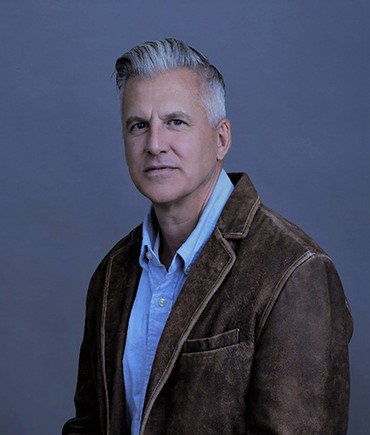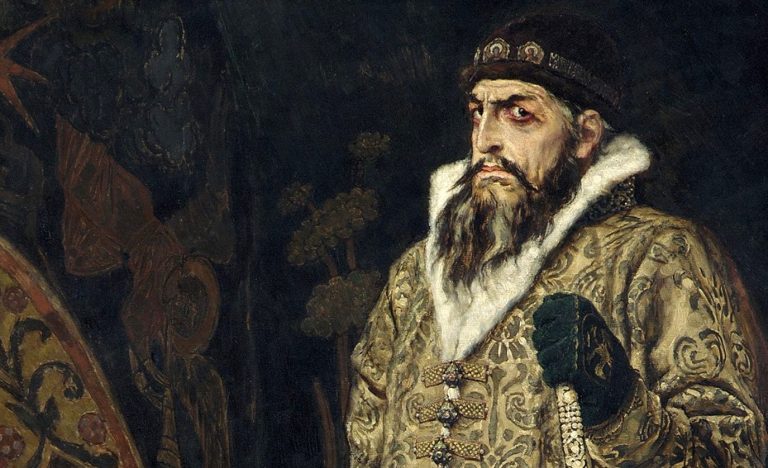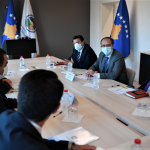One problem of Western policymakers is the desire to re-make Russia into a “democratic nation.” Such an approach has confounded US foreign policy since the collapse of the Soviet Union.[1] Most importantly, American-style democracy and the Russian equivalent (демократия) are not the same. For most Americans, democracy has a semantic halo that includes broad political participation and a representative government. For Russians, democracy is part of the trauma of the Boris Yeltsin years (1990s). In fact, Vladimir Putin, since becoming President of Russia more than twenty years ago, has positioned himself as the antidote to this type of Western democracy (i.e. liberalism and globalism).[2] Therefore, expecting Russia to become a democratic nation in the Western image is wrongheaded.
What is the correct approach? For starters, Russian democracy does not have a “founding fathers” narrative, nor is it associated with a figure like George Washington. Ivan the Terrible is recognized for unifying the modern Russian state through extreme violence. Russian democracy (a relatively new concept) was formed in the aftermath of the Soviet collapse. This was a period that lacked any social, political, personal, or judicial limits. Soviet society had disintegrated overnight, and in its place was a country in economic shambles, with a nonfunctioning political system; a population which had lost its moral compass and social structures that were beyond repair. Stability was replaced by volatility at all layers of society. This was a Darwinian fight for daily survival.
The lawlessness of the 1990s would eventually be associated with an earlier historical precedent: The Time of Troubles; the period between the Rurik and Romanov dynasties (1598-1613). Because there was no clear political successor after the death of Fyodor I, political anarchy ensued, and the country was attacked by foreign enemies. Only once Mikhail Romanov was selected as Tsar, was order restored. The Romanov dynasty lasted 300 years with Peter the Great and Catherine the Great as examples of strong and competent leadership; neither of whom could be confused with Abraham Lincoln. In fact, the historical lesson learned over time was that foreign enemies will take advantage of Russia during periods of weakness. Whether this is 200 years of the Tatar-Mongol Yoke, The Time of Troubles or the Yeltsin years, Russia suffers without strong political (autocratic or even totalitarian) leadership. Just as Joseph Stalin once asked filmmaker Sergei Eisenstein to rehabilitate the image of Ivan the Terrible, the Kremlin has now rehabilitated Stalin as a strong and competent leader. In Russia, a revised history is often used to validate the decisions of the present.[3]
In fact, Putin has selectively chosen from both the Imperial and Soviet past to define the Russian concept of strong leadership. His “Russian Idea” echoes the conservative policies of Nicholas I (ie. the Uvarov doctrine): Orthodoxy, Autocracy, Nationality. More importantly, his “vertical of power” is a return to a top-down, centralized command structure from the Soviet era. This has both autocratic and totalitarian antecedents that positively resonate for Russians looking for economic, political, and social stability. Therefore, the “managed democracy” of Putin is much more understandable within a Russian historical context than the American version.
In fact, since Putin’s pivot, following the political protests of 2011-13, Russian history has been actively employed to argue that the West’s value-system is anti-Russian. Aleksandr Dugin’s version of Eurasianism has been adapted by the Kremlin to advance its own assault on Western liberalism.[4] In 2014, Putin began to talk of a “Russian world” (originally a Dugin concept) that has been informed by negative, hostile interactions with the West, which resulted in a stronger version of Russia; not a version of Western European Russia. Therefore, why is US foreign policy fixated on coopting or reforming Russia? What I am arguing is not new: to understand Putin, you must first know your Russian history and culture.[5] We cannot continue to approach Russia with our own semantic halo of representative government. In this instance, American exceptionalism does not trump Russian exceptionalism (державность). Putin has repeatedly made this point.[6]
In recent polling data from the Levada-Center, it is evident that the Kremlin has been successful in its messaging. Political rivals supported by the West such as Aleksei Navalny are not changing Russian concepts of strong and competent leadership. In fact, nearly fifty percent of those polled were looking for a new Putin to replace the old Putin. More importantly, until a new strong leader has emerged, Russians are content to support Putin, not to elect Navalny or some other “democratic” politician.[7] The Russians are not looking for radical political change that might result in another Time of Troubles. Instability often leads to chaos in the Russian historical context. Therefore, Russians want another strong and competent Putin who will be able to defend Russian sovereignty. American foreign policy should recognize this as the will of the Russian people.
[1] Rumer, Eugene and Richard Sokolsky. “Thirty Years of U.S. Policy Toward Russia: Can the Vicious Circle Be Broken?,” Carnegie Endowment for International Peace, 2019. https://carnegieendowment.org/2019/06/20/thirty-years-of-u.s.-policy-toward-russia-can-vicious-circle-be-broken-pub-79323
[2] Hill, Fiona and Clifford G. Gaddy. Mr. Putin: Operative in the Kremlin, New and Expanded. Washington D.C.: Brookings Institution Press, 2013. “Putin essentially ran his 2012 campaign against the past, specifically the 1990s, rather than against another candidate. Mr. Putin clearly sees his presidency as the product of, as well as the answer to, the Russia of the 1990s,” 6.
[3] Hill and Gaddy discuss Putin’s use of a “useful history” as a manipulation of the past as a policy tool (64) and how the past is used to provide legitimacy for the present (74) in Mr. Putin.
[4] Gessen, Masha. The Future is History: How Totalitarianism Reclaimed Russia. New York: Riverhead Books, 2017. 388-90. Also see: Clover, Charles. Black Wind, White Snow: The Rise of Russia’s New Nationalism. New Haven: Yale University Press, 2016.
[5] Stent, Angela. Putin’s World: Russia Against the West and With the Rest. New York: Twelve, 2019.
[6] Putin clearly articulated his perspective on American exceptionalism and a unipolar world led by the US and EU at the 43rd Munich Conference on Security Policy (10 February 2007): https://www.washingtonpost.com/wp-dyn/content/article/2007/02/12/AR2007021200555_pf.html
[7] Kolesnikov, Andrei. “Why the Kremlin is Winning the Battle for the Average Russian,” Carnegie Moscow Center (29 March 2021): https://carnegie.ru/commentary/84191?utm_source=rssemail&utm_medium=email&mkt_tok=MDk1LVBQVi04MTMAAAF8HNkMZwLX_W1FOvPxuL3j-ImcHE6thvBPuZ44TH3IyhQy37eQtaAF_BjI5rONxt6mFiC5DXOBo23OKi0XpvojrehA2yPtz2M4cCE-_ypAfI1ZXQ
Post Author
Author
-

Dr. Frederick H. White is Professor of Russian and Integrated Studies at Utah Valley University. He
View all posts
has published eight books and over forty academic articles on Russian literature, film and culture.
He is one of the leading specialists on the writer Leonid Andreev and has published in the areas of
Russian Modernism, psychiatry and literature in the Russian fin de siècle, the economics of culture
and post-Soviet cinema. Dr. White teaches courses in the National Security Studies program at UVU,
including, most recently, Putin’s Russia (Spring 2021).




